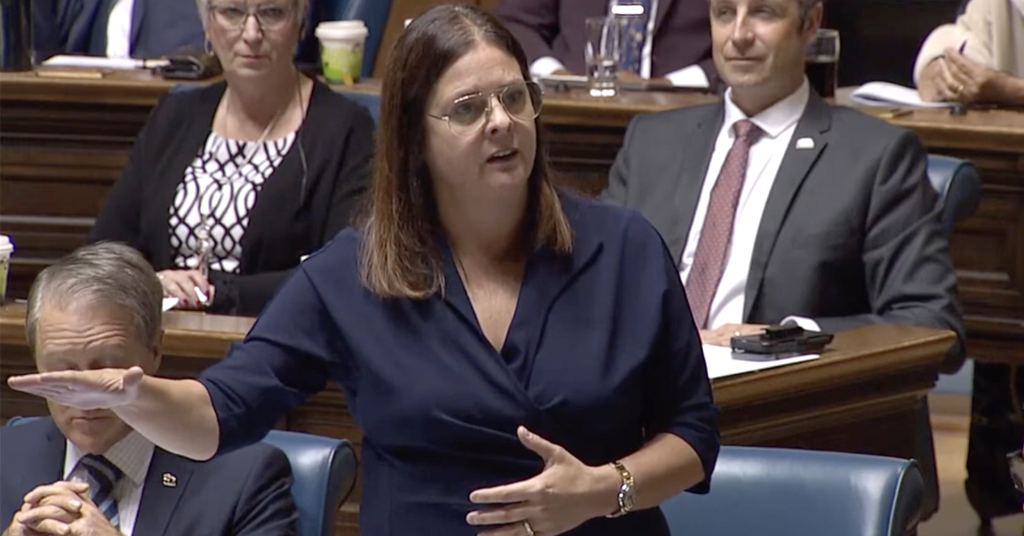
[ad_1]
Proposed Bill 36 would seek to muzzle the Public Utilities Board of Manitoba
Manitoba’s PC government is set to pass a hydro bill that critics warn will put limits on the ability of the province’s Public Utilities Board to criticize government-mandated rate increases.
Bill 36, The Manitoba Hydro Amendment and Public Utilities Board Amendment Act, would make significant changes to the way Hydro electricity rates are set in the province.
The Public Utilities Board describes itself as “an independent, quasi-judicial administrative tribunal that has broad supervisory and control powers over public utilities and designated monopolies.” The PUB also reviews and approves hydro rates for residential and commercial users through public hearings.
Bill 36 would limit the independence of the Public Utilities Board and force the DRINK to be more responsive to government mandates. In addition, Bill 36 could strip the Public Utilities Board of its ability to criticize government directives.
According to the Bill, the Public Services Board would no longer have “the authority to determine or inquire into the validity” of a regulation, directive or order made by the province:
“The board does not have the authority to determine or inquire into the validity of
(a) regulation; or
(b) a directive or order made or issued under the Crown Corporations Governance and Accountability Act or the Financial Administration Act.”
An explanatory note accompanying Bill 36 states that the Public Utilities Board “is not authorized to issue orders or directives” regarding Manitoba Hydro operations, but “may make recommendations” only “if authorized by the minister.”
“It’s a pretty blatant act of censorship, in my opinion,” said Alex Buchner, an organizer with the Protect the PUB Coalition. Press Progress.
“The most immediate application of this is that the Public Service Board cannot, in its next hearing, say, ‘These financial targets that the government has set are unreasonable’. As they simply cannot make such a statement. “
“It’s also unfortunate because in the past, the Public Utilities Board has made comments on government policy and regulation and it has been very helpful.”
And while Bill 36 caps Hydro rate increases at “5% or the rate of inflation, whichever is less,” Buchner points out that the PUB has routinely recommended increases that are much lower.
“That’s a pretty common theme that you’re going to see in these hearings. Manitoba Hydro will come up with a number and the Public Utilities Board will say, ‘We don’t think you really need that much’.”
For example, the PUB blocked a 7.9% Hydro increase and recommended only 3.6% in 2018. The PUB also implemented a separate rate for First Nations communities that exempted them from any increase and suggested that Manitoba Hydro use its revenues to create bill affordability. program for low-income Hydro users.
Manitoba Hydro fought the PUB’s rate freeze for Aboriginal communities and had the PUB’s ruling overturned in court in 2020. Hydro also never created a bill-paying program for low-income users.
However, the PUB’s ability to make recommendations that the government disagrees with can still provide valuable democratic oversight, Buchner says.
“Energy poverty is a major factor around the province, specifically indigenous communities, especially remote ones, they are usually not connected to the natural gas network. So they use electric heaters to heat their homes throughout the winter – which of course is much more expensive. So they are disproportionately affected by the increase in electricity prices.”
“It is not clear that (the PUB) could make the same recommendations under this new law if they are prohibited from talking about what the government is doing or directing others to do.”
For its part, PUB says it cannot comment on whether or not it is being censored by the Manitoba government.
“PUB is unable to make any statement on Bill 36,” said a PUB spokesperson Press Progress.
Bill 36 passed first reading and is currently in the committee stage. Protect the PUB organized workshops and resources to prepare community members to speak at commissions. Other organizations in opposition to Bill 36 include the Public Interest Law Center, Harvest Manitoba, the Consumers’ Association and the Indigenous Council of Winnipeg.
Bill 36 is the third attempt by the Manitoba PCs to limit the power of the PUB. Bill 36 has similar goals to previously withdrawn Bills 35 and 44 which were introduced following a controversial report on Hydro finances authored by former Saskatchewan Party premier Brad Wall.
Much of Wall’s report focused on the previous NDP government’s construction costs for Manitoba Hydro’s Keeyask Generating Station and the Bipole III transmission line.
However, CCPA researcher Lynn Fernandez described Wall’s report as “full of omissions and misinterpretations that result in an overly pessimistic account of Hydro’s economics and practices.”
New report “Manitoba Hydro & Public Utilities Board: An Uncertain Future” by @LynneFernandez unpacks the approaches used by @mbgov to dismantle Public Utilities Board with Bill 44 & @manitobahydro Investigation by Brad Wall @JeffWharton4MLA @AdrienLouisSala @DFLamont https://t.co/ScKQvdipna pic.twitter.com/QiCEfrPr8Y
— CCPA-MB (@CCPAB) 7 October 2020
“Part of PC’s political strategy has been criticizing the NDP for spending on Keeyask and Bipole III,” said Niall Harney, senior CCPA researcher. Press Progress. “Those projects went over budget and added a lot to Manitoba Hydro’s overall debt.”
“They’ve used this to justify things like removing oversight or increasing rates for hydro for quite some time,” Harney added. “This debt is very, very sustainable. Manitoba Hydro is a public utility that has a monopoly over electricity in the province and is very capable of paying back its debts over a long period of time.”
“The claim that rates need to be increased now to deal with this debt is completely unfounded.”
Our journalism is powered by readers like you.
We are an award-winning not-for-profit news organization that covers topics such as social and economic inequality, big business and labor, and right-wing extremism.
Help us build so we can uncover stories that aren’t getting the attention they deserve from Canada’s big corporate media.
to give
[ad_2]
Source link
